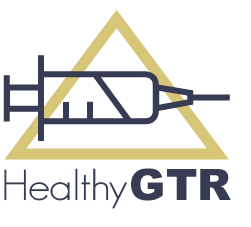FAQs
- Who is eligible for the vaccine?
Anyone 12 and up in the United States is eligible to receive a Pfizer vaccine. Anyone 18 and up is eligible to receive a Moderna or Johnson & Johnson vaccine.
Pregnant and nursing women are eligible for the vaccine.
If you have previously had an allergic reaction to a vaccination or have an underlying health condition, please consult your health care provider. Visit this CDC page for more information.
- How much does the vaccine cost?
The vaccine is free. See more information here.
- Is the vaccine safe?
Yes. These vaccines deliver information to your immune system to spur the production of COVID-19 antibodies, and the vaccine itself is quickly eliminated by the body.
Due to the number of people who have received the vaccine worldwide, there is actually far more safety data on the COVID-19 vaccines than others.
- I have existing health conditions. Can I get the vaccine?
Most people can get a COVID-19 vaccine if they have an existing health condition, so long as they haven’t had an allergic reaction to a COVID-19 vaccine or to any of its ingredients. But there is limited information available about the safety of COVID-19 vaccines in people who have weakened immune systems or autoimmune conditions. In addition, a COVID-19 vaccine might not fully protect people from COVID-19 who have a weakened immune system that is caused by HIV, certain conditions or medications. They may need to continue taking precautions.
If you have questions about the vaccine and you have any existing health conditions — including a weakened immune system or autoimmune conditions — or you take medications, talk to your doctor.
- What are the vaccine side effects?
COVID-19 vaccines can cause mild side effects after the first or second dose, including:
- Pain, redness or swelling where the shot was given
- Fever
- Fatigue
- Headache
- Muscle pain
- Chills
- Joint pain
- Nausea and vomiting
- Swollen lymph nodes
Most side effects happen within the first three days after vaccination and typically last only 1 to 2 days.
See more information from the CDC regarding side effects here.
- How did the vaccine come out so quickly?
Decades of previous work combined with a fast-moving virus, a public willingness to help, and the elimination of long wait times allowed for the rapid development of the vaccine, without skipping safety steps.
Thanks to decades of research on mRNA vaccines and coronavirus outbreaks like SARS and MERS, scientists had a headstart when COVID-19 was introduced.
Additionally, the rapid spread of the virus made the development of these vaccines a global priority, bringing together the world's leading researchers and medical experts for a common goal.
Due to a large number of volunteers for vaccine testing and how quickly the virus spread, the amount of time it took for scientists to have data on the safety and efficacy of the vaccine was greatly reduced.
The vaccines were still required to meet stringent FDA standards, but the vaccines were moved to the front of the line for review.
For detailed information on the vaccine rollout, follow these links to articles from Science News and UAB Health.
- How does an mRNA vaccine work?
Both the Pfizer-BioNTech and Moderna COVID-19 vaccines are messenger RNA (mRNA) vaccines and do not contain any virus (live or dead). mRNA is naturally made by the body, and encodes instructions for the body's cells to make proteins; an mRNA vaccine mimics this process.
The mRNA in the vaccine is like a recipe that gives your body instructions to make a harmless piece of spike proteins, like the spikes you see on the outside of the coronavirus. After it's been read, the mRNA is dissolved.
Our immune system sees that the created spike protein doesn’t belong, and this causes our body to start building an immune response and making antibodies. It is these antibodies that fight off spike proteins that will then protect us the next time we come in contact with the virus that causes COVID-19.
For more information, see this infographic from Univesity of Texas Medical Branch or watch this video from Johns Hopkins Bloomberg School of Public Health.
- I've already had COVID-19. Do I still need the vaccine?
Yes. Getting COVID-19 might offer some natural protection or immunity from reinfection with the COVID-19 virus. But it’s not clear how long this protection lasts.
Because it’s possible to get reinfected and COVID-19 can cause severe medical complications, the Centers for Disease Control and Prevention recommends that people who have already had COVID-19 get a COVID-19 vaccine.
If you were treated for COVID-19 with monoclonal antibodies or convalescent plasma, wait 90 days before getting a COVID-19 vaccine.
- Can a COVID-19 vaccine give you COVID?
No. The COVID-19 vaccines currently being developed in the U.S. don't use the live virus that causes COVID-19. As a result, the COVID-19 vaccines can't cause you to become sick with COVID-19 or shed any vaccine components.
Keep in mind that it will take a few weeks for your body to build immunity after getting a COVID-19 vaccination. As a result, it's possible that you could become infected with the virus that causes COVID-19 just before or after being vaccinated.
- Will the vaccine alter my DNA?
No. The mRNA from the Pfizer and Moderna COVID-19 vaccines never enters the nucleus of the cell, which is where our DNA is kept. This means the mRNA doesn’t interact with our DNA in any way. Instead, COVID-19 vaccines that use mRNA work with a body’s natural defenses to safely develop protection against COVID-19 disease.
Viral vector vaccines, like the Johnson & Johnson vaccine, use a modified version of a different, harmless virus (the vector) to deliver important instructions to our cells to start building protection against COVID-19. The instructions are delivered in a form that does not integrate into a person’s DNA.
- Will it cause infertility?
Available data indicates that COVID-19 vaccines do not cause infertility in women or men.
In the randomized blinded Pfizer-BioNTech trial, a similar number of women conceived after receiving the vaccine as those who received the placebo.
COVID-19 vaccination is recommended for women who are contemplating pregnancy or who are pregnant in order to minimize risks to themselves and their pregnancy.
Recent studies have suggested that pregnancy is a risk factor for severe COVID-19 disease. Furthermore, many women who are pregnant or contemplating pregnancy have additional risk factors such as obesity, hypertension or diabetes which may further increase the chance of severe disease from COVID-19 infection. These considerations should be included in decisions regarding vaccination.
Read more here from the American Society for Reproductive Medicine.
- Can I take the vaccine if I'm pregnant or breastfeeding?
The American College of Obstetrics and Gynecology (ACOG) recommends that all pregnant women be vaccinated against COVID-19. Getting a vaccine could help both you and your fetus. Remember that pregnant women have a higher risk of severe illness from COVID-19 than nonpregnant women. The vaccines are very effective at preventing COVID-19 infection, severe illness, and death.
A growing amount of data confirms that COVID-19 vaccines are safe during pregnancy. Scientists have compared the pregnancies of women who have received COVID-19 vaccines and women who have not. The reports show that these women have had similar pregnancy outcomes. Data do not show any safety concerns.
If you are pregnant and want to know more about the vaccines, you can talk with your obstetrician–gynecologist (ob-gyn) or other health care professional. This conversation is not required to get a vaccine, though it may be helpful. You can discuss your risk of getting COVID-19 and your risk of severe illness if you get sick.
For more information and to read answers to more COVID-related questions for pregnant and nursing women, please visit The American College of Obstetricians and Gynecologists site.
- Why are vaccinated people still getting sick?
COVID-19 vaccination will protect most people from getting sick with COVID-19.
A small percentage of fully vaccinated people will still get COVID-19 if they are exposed to the COVID-19 virus. These are called vaccine breakthrough cases. Some people might not experience any symptoms and some people could become sick due to COVID-19.
However, vaccination has shown to make illness less severe in most cases. If you are fully vaccinated, the overall risk of hospitalization and death due to COVID-19 is much lower than among unvaccinated people with similar risk factors.
- How long after I take the shot does it become effective?
It takes time for your body to build protection after any vaccination. People are considered fully vaccinated two weeks after their second shot of the Pfizer-BioNTech or Moderna COVID-19 vaccine, or two weeks after the single-dose J&J/Janssen COVID-19 vaccine. You should keep using all the tools available to protect yourself and others until you are fully vaccinated.
Answers to the frequently asked questions on this page have been sourced from the following medical and research institutions:
The Golden Triangle Development LINK is the economic development organization representing Clay, Lowndes, and Oktibbeha Counties in North Mississippi's Golden Triangle. The COVID-19 virus has been detrimental to our communities, and we believe that the physical and economic health of the Golden Triangle is dependent upon the vaccination of our citizens.
The LINK's aim is to unify the voice of our local health care providers, trusted with the routine care of our community, in order to encourage vaccination and provide reliable and consistent information. The Golden Triangle Development LINK is not a member of the healthcare industry, and as such, any information contained on this site has been sourced from highly-regarded medical professionals and institutions outside of our organization.
If you are a local health care provider who would like to join the Healthy GTR movement, learn more here.
All Rights Reserved


